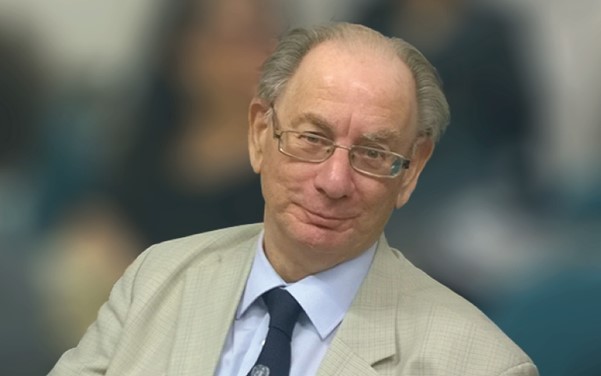Michael Safier 1941-2024: an Appreciation (Caren Levy, Adriana Allen, Giovanna Astolfo)

Michael Safier, who was a DPU colleague and a founder-member of DPU-Associates since 2008, died on 9 November 2024 at the age of 83.
He was a pivotal figure in urban planning and a dedicated scholar, teacher, and practitioner in the field of development planning. On graduating with a BSc in ‘Economics’ from the London School of Economics and Political Science (LSE) in 1967, He was appointed a Lecturer in Economics at Makerere University in Kampala, Uganda, for one year, following which he spent two years as a Research Fellow at The Makerere Institute of Social Research, Kampala, He then returned to London, where, in 1970, he joined teaching staff of the Architectural Association (AA) Department of Development and Tropical Studies. In 1971, together with his colleagues, he joined the academic staff of the newly founded Development Planning Unit (DPU), academically attached to, the then, School of Environmental Studies in University College London (UCL). He taught at the DPU from 1972 until his retirement in 2006. Throughout his career in the DPU, he championed ‘urban development planning’ and ‘cosmopolitan development’ in Diploma and Certificate course modules, in Master's Degree programmes and in his supervision of PhD candidates. Early in his career in the DPU, he devised a major research project on ‘Planned urban growth’ that he directed with a research team, in Lusaka, Zambia from 1972-1974. Thus, he was central to every aspect of the DPU for some 35 years.
His colleagues and his many students will always be grateful for the valuable time and discussions that he so generously shared with them. His life's work centred on urban development planning, post-conflict reconstruction, and the complex challenges of planning in divided societies. A leading advocate for ‘cosmopolitan development’, Michael Safier envisioned cities as spaces where cultural groups could co-exist peacefully, fostering dialogue and understanding, in often fractured urban environments. This vision became a foundational element in his teaching, research, and professional practice, resonating through his work in many cities.
At the core of his thinking were the concepts of ‘room for manoeuvre’ for transformative urban development, ‘urbicide’ and ‘cosmopolitan planning’. They reflected his deep commitment to understanding and mitigating social division and violence, inherent in many urban environments. Michael’s work on the latter began with his engagements in Jerusalem and Sarajevo, where he sought solutions to bridge divides in deeply conflicted regions. His philosophy emphasized the urgent need to “learn how to live together or die apart,” a perspective that he first articulated in 1996. His ideas have gained renewed importance as urban conflicts and polarisation have escalated globally.
Michael Safier’s influence extended far beyond the classroom; he served as an adviser and consultant for many international projects, advising the UNDP, World Bank, the UK Department for International Development (DFID, formerly ODA), UN-HABITAT (formerly UNCHS), and various national governmental agencies and NGOs in, Iran, Indonesia, China, Nigeria, Zambia, Zimbabwe, Ghana, South Africa, Israel-Palestine, and Bosnia. Notably, his work with the Commission on the Future of Jerusalem (1993) and the Bosnian Institute of Regional and Urban Development (2001–2005) exemplified his dedication to conflict-ridden cities.
